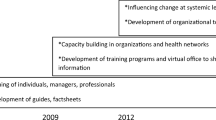
Overview
- Systematically applies the Programmatic Action Framework to a comparative study of public policy
- Compares health policy-making in France and Germany between 1990 and 2020
- Investigates the extent to which institutions influence the formation of programmatic groups
- This book is open access, which means that you have free and unlimited access
Part of the book series: International Series on Public Policy (ISPP)
Buy print copy
Tax calculation will be finalised at checkout
About this book
This open access book is the first monograph to systematically apply the Programmatic Action Framework (PAF) in a comparative analysis of public policy in two institutionally different countries. The PAF seeks to explain long-term policy change by examining the shared biographies of policy actors who, to foster their careers, coalesce around policy programs which they promote throughout the policy process. Comparing health policy-making in France and Germany between 1990 and 2020, the book sheds light on the institutional settings that are necessary for programmatic action to occur. It will appeal to scholars and students of public policy, public administration, and health policy.
Similar content being viewed by others
Keywords
Table of contents (8 chapters)
-
Front Matter
Reviews
- Giliberto Capano, Professor of Political Science and Public Policy, University of Bologna, Italy
“Johanna Hornung’s book is an excellent and novel application of a recently established policy process framework: the Programmatic Action Framework (PAF). The book presents empirical cross-country evidence for the PAF's idea that overlapping biographies of policy actors and resulting social identities often drive collective action. Hornung further offers an in-depth analysis of how elite recruitment, institutionalized scientific advice, and biographical commonalities among policy actors can influence long-term policy change over several decades. A central finding of this work is that programmatic groups can form in every country, but they depend more on an institutionalization of scientific advice and career recruitment than on federalist or corporatist structures that are usually viewed as moderators of policy processes.”
- Tanya Heikkila, Professor of Public Affairs, University of Colorado Denver, USA
“This carefully researched and argued book continues the development of the Programmatic Action Framework, an approach to policy-making built on the basis of careful examination of the situation in France where policy-making is characterized by how ‘policy actors coalesce around a policy program to achieve policy change in order to advance their own authority and careers in a policy area’. The approach combines elements from public administration, elite sociology, and social psychology to help explain policy dynamics and provides many insights into how policies develop, are maintained, and change. By examining the similarities and differences between the German and French health policies, the book highlights how program coalitions and activities in each country differ in terms ofsocialization and elite formation – which in Germany promotes cross-program identities as lawyers or party politicians rather than purely program proponents – and in the degree of institutionalized involvement of expert advice in the policy process. This work advances knowledge of programmatic actors comparatively and, as such, moves understanding of the central concept of this promising approach to policy studies forward.”- Michael Howlett, Burnaby Mountain Professor, Simon Fraser University, Canada
"Institutionalism meets the Programmatic Action Framework. Johanna Hornung's in-depth comparative study is a must-read to understand under which conditions the interplay between institutions and programmatic actors changes French and German health policies from the 1990 to 2020. Hornung shows that policy change is irrevocably linked to the programmatic group, framed by two specific institutions - the recruitment processes and career paths of administrative actors. "
- Sabine Saurugger, Professor of Political Science, Science Po Grenoble, FranceAuthors and Affiliations
About the author
Bibliographic Information
Book Title: The Institutions of Programmatic Action
Book Subtitle: Policy Programs in French and German Health Policy
Authors: Johanna Hornung
Series Title: International Series on Public Policy
DOI: https://doi.org/10.1007/978-3-031-05774-8
Publisher: Palgrave Macmillan Cham
eBook Packages: Political Science and International Studies, Political Science and International Studies (R0)
Copyright Information: The Editor(s) (if applicable) and The Author(s) 2022
Hardcover ISBN: 978-3-031-05773-1Published: 08 October 2022
Softcover ISBN: 978-3-031-05776-2Published: 08 October 2022
eBook ISBN: 978-3-031-05774-8Published: 07 October 2022
Series ISSN: 2524-7301
Series E-ISSN: 2524-731X
Edition Number: 1
Number of Pages: XXI, 237
Number of Illustrations: 9 b/w illustrations, 3 illustrations in colour
Topics: Public Policy, Comparative Politics, Health Policy



